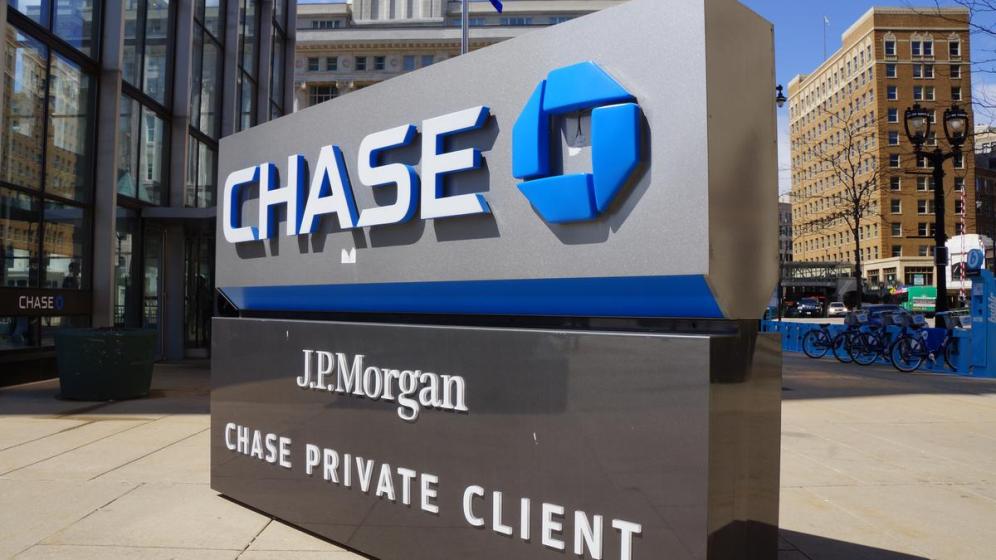Private banking is designed for individuals with significant wealth who want a customized approach to managing their finances. Unlike traditional banking, private banking pairs clients with dedicated advisors to help them handle everything from complex investments to tax strategies—all with a high level of personal service.

This guide breaks down how private banking works, who benefits most, and what to consider if you’re thinking about using these exclusive services.
Key Takeaways
- Private banking provides tailored financial services for high-net-worth individuals, including asset management, investment advisory, tax planning, and wealth transfer strategies.
- Benefits of private banking include personal attention, comprehensive wealth management, exclusive financial products, and a streamlined banking experience. However, services can be costly, limited in availability, and complex.
- Private banking eligibility often requires a high net worth, substantial income, and an established relationship with the bank. Typical fees include account maintenance, asset management, and investment management charges, so weighing the costs and benefits is essential.
What is private banking?
Private banking is a premium financial service tailored for individuals and families with substantial assets. It provides a dedicated relationship manager who works closely with clients to create a customized financial plan aligned with their unique goals. Services often include investment planning, tax strategy, and wealth preservation, all managed with a high level of personal attention and expertise.
Private banking clients also gain access to exclusive products, alternative investments, and personalized solutions that go beyond what’s available through standard banking. This service is designed to support complex financial needs and offer a more luxurious banking experience, often featuring private banking centers, exclusive events, and additional perks.
By focusing on both day-to-day financial management and long-term strategies, private banking helps clients manage and grow their wealth with a more hands-on approach.
Who is private banking for?
Private bankers cater exclusively to high net worth individuals and affluent families. They typically possess intricate financial portfolios and require specialized financial solutions beyond what traditional banks offer.
Private banking clients often have distinct financial objectives, such as preserving wealth for future generations or diversifying their investment portfolio. They need the support and expert counsel of a personal relationship manager to help them reach these goals.
If you value a personal touch and are searching for a more thorough approach to wealth management, then private banking might be the perfect fit for you.
Private Bank Services
Private banking provides personalized financial services to cater to the distinct needs of each client. These services include:
Tailored investment strategies: Private banks aim to preserve and enhance wealth with tailored investment advice, portfolio management, and risk management services.
Investment advisory: Expert private bankers collaborate with clients to design a bespoke investment plan, taking into account financial goals and risk tolerance.
Tax planning: With a focus on minimizing tax liabilities and maximizing wealth, private bankers offer specialized tax advice.
Wealth transfer: To ensure smooth transfer of wealth to future generations, private bankers provide comprehensive guidance on wealth transfer strategies.
Concierge services: Private banks offer a more luxurious and personal banking experience with concierge-style services such as bill payment, account management, and access to private banking centers.
Private Banking Pros and Cons
As with any financial service, private banking has its advantages and disadvantages. Understanding the pros and cons of private banking can help you determine if it’s the right choice for you.
Pros
- Personalized attention: With a private bank, clients receive exceptional attention, as their bankers tailor services to meet their unique needs and objectives.
- Comprehensive financial services: From investment advisory to tax planning, private banks provide a comprehensive suite of services, streamlining wealth management.
- Access to exclusive financial products: Private banking customers get access to products and services not available to the public.
- Efficient banking experience: With a single point of contact, a private banker makes the banking experience more efficient, handling all of your personal and business needs.
Cons
- High costs: When compared to conventional banking options, working with a private banker can come with a steep cost, making it challenging for people with limited financial resources to take advantage of them.
- Limited availability: Private banking services may not be available at all banks, and may only be offered at select institutions.
- Complexity: With a wide array of intricate services, a private banking relationship can be challenging to fully utilize without an in-depth understanding of finance and wealth management.
Private Banking Eligibility Requirements
What determines your eligibility for private banking services, you might ask? These services are primarily created for high net worth individuals and families. However, there are several criteria that banks consider when deciding whether a client is eligible. Let’s explore the common eligibility requirements:
- Net worth: The required minimum net worth for private banking services is usually a moving target, differing from one bank to another. Some banks might require a minimum net worth of $250,000, while others might set the bar higher, at $5 million or more.
- Income: Along with net worth, banks often consider a client’s annual income when determining their eligibility.
- Investment portfolio: Private banks also evaluate a client’s investment portfolio to gauge their financial stability and investment savvy.
- Financial objectives: Banks will assess a client’s financial goals and needs to determine if they are a suitable candidate.
- Bank relationship: Banks may also require clients to have a pre-existing relationship with the bank, such as a checking or savings account, to qualify.
Keep in mind that these criteria can vary from bank to bank and are subject to change. Hence, private banking clients are advised to reach out to the bank directly for more information on their specific requirements.
What to Look for in a Private Bank
Choosing the right private bank is essential to ensure you receive the best possible service and support for your financial goals. When evaluating private banks, consider factors such as the bank’s reputation, client satisfaction ratings, and the expertise of its relationship managers. A strong reputation and positive client feedback often signal quality service and reliability.
Access to global financial services and digital tools is also key. Some private banks offer extensive online platforms and mobile apps, allowing you to manage accounts, view investments, and communicate with your advisor from anywhere in the world. If you frequently travel or have international financial interests, look for a financial institution with a global presence and specialized services to meet those needs.
Finally, the experience and skills of the relationship manager assigned to you can make a significant difference in your banking experience. Make sure the manager has a background in areas that align with your financial goals, such as tax strategies, estate planning, or investment management. Comparing private banks and carefully evaluating their offerings helps you find the one that fits best with your needs and priorities.
The Cost of Private Banking
One of the key considerations when evaluating private bankers is the cost. While private banking offers a host of exclusive services and benefits, it also comes with a higher price tag. Here’s a closer look at the cost of private banking:
- Account maintenance fees: A recurring charge, either monthly or annually, is often levied by private banks to keep your bank account in good standing. This fee could be a few hundred dollars or soar up to several thousand dollars, depending upon the financial institution and the services offered.
- Asset management fees: When it comes to safeguarding your wealth, a private bank may charge fees based on the percentage of your assets under management or a flat rate. These fees could vary anywhere between 1-2% of your assets under management or higher.
- Investment management fees: For specialized investment products and services, private banks may also ask for investment management fees.
- Other fees: A private bank may also charge fees for services such as wire transfers, bill payments, and other financial transactions.
Private Banking vs. Wealth Management
Private banking and wealth management are often used interchangeably, but they offer different types of financial support. Let’s take a closer look at how they compare:
- Definition: Private banking refers to a premium banking service that offers customized products and services to high-net-worth individuals. On the other hand, wealth management encompasses a broader array of financial planning services, aimed at helping private banking clients grow and secure their wealth over the long term.
- Services: Private bankers usually offer a concierge banking experience, investment management, and wealth planning. However, wealth management services cover a wider array of services, such as estate planning, tax services, insurance management and financial planning.
- Client profile: Typically, private banking caters to individuals with investable assets of over $1 million and is targeted towards high net worth individuals. In contrast, wealth management offers services that can cater to a wider range of clients, including those with modest wealth.
- Cost: Private banking comes at a premium price compared to traditional banking services. Meanwhile, wealth management fees can be charged as a percentage of assets under management or a flat fee and can range from 0.5% to 2% or higher.
See also: Best Bank Accounts for Millionaires of 2025
Who offers private banking?
Private banking is offered by various financial institutions, including commercial banks, investment banks, and trust companies. Some of the largest and well-established commercial banks, such as JPMorgan Chase, Bank of America, and Citigroup, offer private banking services.
Additionally, there are dedicated private banks, such as UBS, Credit Suisse, and Julius Baer, that focus exclusively on providing private banking solutions.
Is private banking right for you?
Before opting for private banking, it’s important to consider the cost of its services in comparison to other financial providers like certified financial planners or investment advisors. While private banking typically requires a minimum of $250,000 in investable assets to qualify, having the funds doesn’t guarantee it’s the right choice for you.
Weigh the pros and cons of the private bank before making a decision. Don’t forget to consider the cost of hiring a CPA and estate attorney, as these expenses can impact your overall decision.
By comparing the cost of a private banker to that of assembling a team of financial experts, you can determine which option offers better value for your money.



